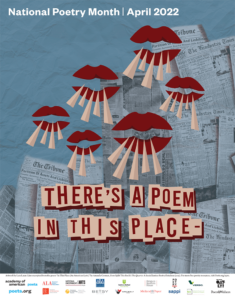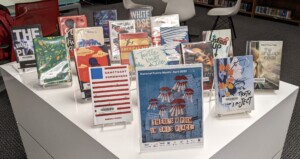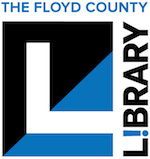
2022 National Poetry Month Poster, Poetry.org
Would you believe me if I told you I know a librarian who was once a ‘reluctant’ reader? It’s true. It was me! Until I was an adult, reading an entire book felt overwhelming and impossible. I would count the pages, distracted by the enormity of so many more left to go. I would do just about anything to get out of reading, and I know I’m not alone. Not everyone who visits the library is a voracious reader. While many are, we meet children and teenagers every day who have the desire to read, but they struggle to commit, especially to stories that don’t interest them. Librarians have lots of great suggestions for mitigating these kinds of things, like audiobooks (totally not cheating), listening to audiobooks while following along with the print version (legal!), and graphic novels (great for introducing new vocabulary in context). In April we’re spotlighting another alternative: Novels written in verse. These books can help apprehensive readers become accomplished readers. And, since it’s National Poetry Month, it’s a perfect time to highlight the relatively novel novel in verse.
Stories written in verse transform what would have been bigger, bulkier stories into concise bites that can be packed with even more emotion and imagery on each page than if the stories had been written in prose. If you’re unconvinced, think about how poetry, in far fewer words, can paint a deeper and more vivid experience for the reader. With fewer words in a concise format, authors can convey their big ideas or experiences to the reader in a fraction of the time. The benefit for an apprehensive reader is successfully finishing a whole book, cover to cover, maybe for the first time.
 A novel in verse can be physically as large as a novel written in prose, but with far fewer words on each page, these stories read fast. A reader can celebrate finally finishing a book cover to cover, while also improving their poetry reading skills and detecting common literary devices, like metaphor, simile, symbolism, and others that they’ll also recognize in prose, and even in their favorite music.
A novel in verse can be physically as large as a novel written in prose, but with far fewer words on each page, these stories read fast. A reader can celebrate finally finishing a book cover to cover, while also improving their poetry reading skills and detecting common literary devices, like metaphor, simile, symbolism, and others that they’ll also recognize in prose, and even in their favorite music.
I believe everyone’s a reader, whether they read a little or a lot, fiction or nonfiction, 800-page novels or cereal boxes. The trick is to find the right book to set a reader up for success. Maybe your first or next successful read is displayed among our novels in verse this month in the Teen Scene.
